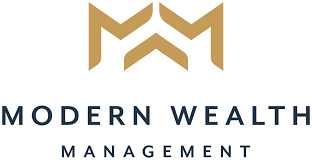9 Best Financial Advisors of 2026
Many, or all, of the products featured on this page are from our advertising partners who compensate us when you take certain actions on our website or click to take an action on their website. However, this does not influence our evaluations. Our opinions are our own. Here is a list of our partners and here's how we make money.
The investing information provided on this page is for educational purposes only. NerdWallet, Inc. does not offer advisory or brokerage services, nor does it recommend or advise investors to buy or sell particular stocks, securities or other investments.
Finding the right financial advisor can feel complicated — there are a number of different factors to consider, including credentials, fees, the types of financial situations the advisor is equipped to handle and whether you want to work with someone locally or through virtual options like video calls.
One thing that can help narrow your choices down right away: The financial advisor's fee structure. The best financial advisors don't earn commissions for promoting specific investments or other products, which can introduce a conflict of interest. Instead, they charge either a flat fee based on how much guidance you need, or a percentage of assets under the advisor's management. (For example, if you have a $250,000 portfolio, the advisor might charge 1% of that per year, or $2,500.)
Beyond fees, a good financial advisor should offer holistic, expert guidance to take the guesswork out of planning for your future goals. They will also adjust their approach to meet your specific needs, and offer a variety of ways to get in touch, including virtual meetings.
This page covers the best financial advisors as chosen by NerdWallet's editorial team. Our writers and editors rated firms on more than 20 data points and applied a lengthy methodology to find the best picks.
How we picked the best financial advisors
Priority 1: Duty to the client. All of the firms on our list are fiduciary financial advisors, which means they're required to put your interests above their own. This helps eliminate conflicts of interest.
Priority 2: Breadth. Some of the financial advisor firms on our list are traditional financial advisors. Through these, you may be able to find a local advisor to meet in person. A couple operate only virtually, which makes them a good fit only if you're OK with meeting over phone or video. Other companies on this list actually aren't financial advisors at all; instead, they maintain a network of partner advisors all over the country and refer you to the financial advisor who is the best fit for your needs. We've noted which companies fall into this category below. (Not included on this list is NerdWallet Advisory, a registered investment advisor operated by NerdWallet that offers advisor matches. We don't review our own products to avoid conflicts of interest.)
Priority 3: Access. The traditional advisors on our list give you unlimited access — if you need them, they will be there. However, we've also included a few financial advisor firms that offer access to a team of financial advisors on an as-needed basis. In those cases, typically you'll talk to a different advisor each time, but you'll generally pay significantly less in fees for their service.
Best financial advisors
Mariner
NerdWallet rating: 4.9 out of 5.0 stars
Reviewed in: Dec. 2025
Period considered: Oct. - Dec. 2025
Fees: 0.60% - 1.25%
Account minimum: $0
Why we like Mariner: Like many other financial advisors, Mariner's fees are tiered based on assets under management. But the firm's highest AUM fee is 1.25% on the first $1 million in assets, which is among the lowest for wealth advisors reviewed by NerdWallet. Investors with balances below $600,000 should take note of the quarterly minimum.
Edelman Financial Engines
NerdWallet rating: 4.7 out of 5.0 stars
Reviewed in: Dec. 2025
Period considered: Oct. - Dec. 2025
Fees: 0.50% - 1.75%
Account minimum: Declined to disclose, but minimums may be set, increased, decreased or waived at the firm's discretion.
Why we like Edelman: Edelman Financial Engines can manage assets across taxable and non-taxable accounts, including those within most 401(k) plans or other workplace retirement plans. The firm’s highest annual fee is 1.75% of the first $400,000 in assets under management, which is among the highest for wealth advisors reviewed by NerdWallet.
Facet
NerdWallet rating: 4.7 out of 5.0 stars
Reviewed in: Oct. 2025
Period considered: Aug. - Oct. 2025
Fees: $2,600 and up per year
Account minimum: $0

Why we like Facet: Facet's financial planning services are flat-fee only, so you always know what you're going to pay. Facet offers customized financial guidance and investment management from a dedicated CFP. Facet advisors can work with you on the majority of situations covered by full-service financial planning firms. *Facet Wealth, Inc. is an SEC registered investment adviser. This is not an offer to sell securities or the solicitation of an offer to purchase securities. Facet’s specific investment management services vary depending upon the chosen service level. This is not investment, financial, legal, or tax advice. Past performance is not a guarantee of future performance.
Modern Wealth Management
NerdWallet rating: 4.7 out of 5.0 stars
Reviewed in: Dec. 2025
Period considered: Oct. - Dec. 2025
Fees: 0.55% - 1.5%
Account minimum: $250,000 but may be waived or negotiated at the firm's discretion.

Why we like Modern Wealth Management: Modern Wealth Management may be right for you if you’ve already accumulated significant wealth that you want someone to manage, you’re prepared to take full advantage of the planning specialists available and you value the option to meet in-person and you’re located near one of the firm’s offices. Because it uses a tiered fee structure — which is common in the wealth management industry — clients who have the smallest balance pay the highest rates.
Ellevest Wealth Management
NerdWallet rating: 4.1 out of 5.0 stars
Reviewed in: Oct. 2025
Period considered: Aug. - Oct. 2025
Fees: 0.25% - 1.25%
Account minimum: $500,000
Why we like Ellevest Wealth Management: Ellevest's Private Wealth Management option is for clients with over $500,000 in assets. This service offers personalized planning, impact investing and access to a dedicated team that will coordinate with accountants and estate attorneys. Ellevest Wealth Management also offers investment opportunities that help address gender inequality, racial injustice and climate change. Ellevest advisors primarily meet with clients virtually, but may be available in person in select markets.
Vanguard Personal Advisor
NerdWallet rating: 4.3 out of 5.0 stars
Reviewed in: Oct. 2025
Period considered: Aug. - Oct. 2025
Fees: 0.30%
Account minimum: $50,000

Why we like Vanguard Personal Advisor: Vanguard Personal Advisor offers unlimited access to financial advisors for a fee not much higher than a simple robo-advisor. The $50,000 account minimum is high, but the low-cost tax strategy and financial planning may make it worthwhile if you're planning on investing that much anyway.
Best financial advisor matching services
Harness Wealth
NerdWallet rating: 5 out of 5.0 stars
Reviewed in: Oct. 2025
Period considered: Aug. - Oct. 2025
Fees: Up to 1% per year
Account minimum: $250,000

Why we like Harness Wealth: Harness Wealth isn't itself a financial advisory firm — the company serves to connect clients to carefully vetted firms. Advisors on the platform typically charge a 1% management fee, but flat-fee financial planning services and tax help are also available.
Wealthramp
NerdWallet rating: 4.9 out of 5.0 stars
Reviewed in: Oct. 2025
Period considered: Aug. - Oct. 2025
Fees: Varies by advisor (free initial consultation)
Account minimum: $0
Why we like Wealthramp: Wealthramp isn't a financial advisory firm — the company connects clients to vetted financial advisors. The advisors in Wealthramp's network typically charge fees that are on the higher end, as are the expense ratios of the investments used. But Wealthramp receives full marks for their financial planning and tax strategy. Because each advisor has their own fee, you may not know exactly what you’ll pay until you contact the advisors.
Zoe Financial
NerdWallet rating: 4.9 out of 5.0 stars
Reviewed in: Oct. 2025
Period considered: Aug. - Oct. 2025
Fees: Varies by Advisor (free initial consultation)
Account minimum: Varies by Advisor, starting at $150,000

Why we like Zoe: Zoe Financial isn't actually a financial advisory firm — the company connects clients to financial advisors. Zoe's account minimum is fairly high at $150,000, but the advisor access is excellent, and advisors hold at least a CFP or CFA designation. The typical fee ranges from 0.75% - 1.25%, but because each advisor has their own fee, you may not know exactly what you’ll pay until you contact the advisors.
Get matched with a financial advisor in minutes through NerdWallet Advisors Match
on NerdWallet Advisors Match
3 things to remember when hiring a financial advisor
As you review this list of financial advisors and compare options, keep these things in mind.
1. Your budget for advice — and average costs
Simple, digital-only services will be less expensive; holistic financial planning will cost more. Know what you're comfortable spending before you dive in, and compare to this table to make sure you're not spending more than you should.
Fee type | Typical cost |
|---|---|
Assets under management (AUM) | 0.25% to 0.50% annually for a robo-advisor; 1% or more for a financial advisor. Some financial advisors reduce their AUM fee on higher asset balances. |
Flat annual fee (retainer) | Typically $2,500 to $9,200. |
Hourly fee | $200 to $400. |
Per-plan fee | Typically $3,000, but the cost will vary by service. |
Commission | 3% to 6% of investment transaction amount. |
2. What services you need
Maybe you just want help picking investments, or maybe you need advice on more advanced topics, like estate planning or insurance needs. These requirements will help you choose what type of financial advisor you need. For example, if you only want a service to pick investments for you and then manage the resulting portfolio, a robo-advisor may be a good fit. (View our picks for the best robo-advisors.) But you'll need a financial advisor for advanced planning, personalized guidance or more detailed strategies like estate planning or prioritizing various goals. No matter what option you choose, check the advisor's qualifications and make sure they are fiduciaries, which means they must act in your best interests.
3. Whether you want in-person advice
If you don’t mind meeting with your advisor virtually versus in an office, you might save money — especially if you work with a larger online-only firm like Facet, one of our picks above. It is cheaper to operate a firm without office locations, and some virtual advisors will pass those savings on to you. If you want to develop an in-person relationship with your advisor, you'll want to opt for a local firm or a larger firm with office locations in your area. The financial advisor search networks on our list can help match you to local options.
» Need more information? Learn how to choose a financial advisor








